If marketers know one thing for sure, it’s this: content marketing trends are constantly changing.
According to industry experts, artificial intelligence (AI) dominates the 2024 content marketing trends.
With the explosion of AI technology over the last two years, the need for the human touch has never been greater.
Using fresh data and insights from our 2024 AI Content Marketing Report, here are nine trends to guide your content marketing strategy this year.
Trend #1: AI Should Be Used by Humans for Humans
2023 brought an explosion of new AI technology with the promise of making marketing easier.
Companies that thought AI tools were only for saving time were wrong.
Michael Brenner, Founder of Marketing Insider Group, understands the power of implementing AI tools in your content strategy.
We use AI to help us understand our audience better, to spot the most important trends, and to find data and research that would normally take us more time. All this helps us to spend more time on what we do best: writing.
Using AI as the foundation for your content, you can build upon AI-generated drafts.
Next, your writers and editors can enrich it with personal stories to connect with your audience on a deeper level.
Brenner says,
The best content is written by humans for humans. After AI helps us lay the groundwork, our in-house writers step in to add stories, depth, and visual support to each piece of content.
So, you might be wondering if you can create high-quality content with AI.
The answer is yes.
Our survey of over 2,600 businesses revealed that 79% saw an improvement in content quality thanks to using AI.
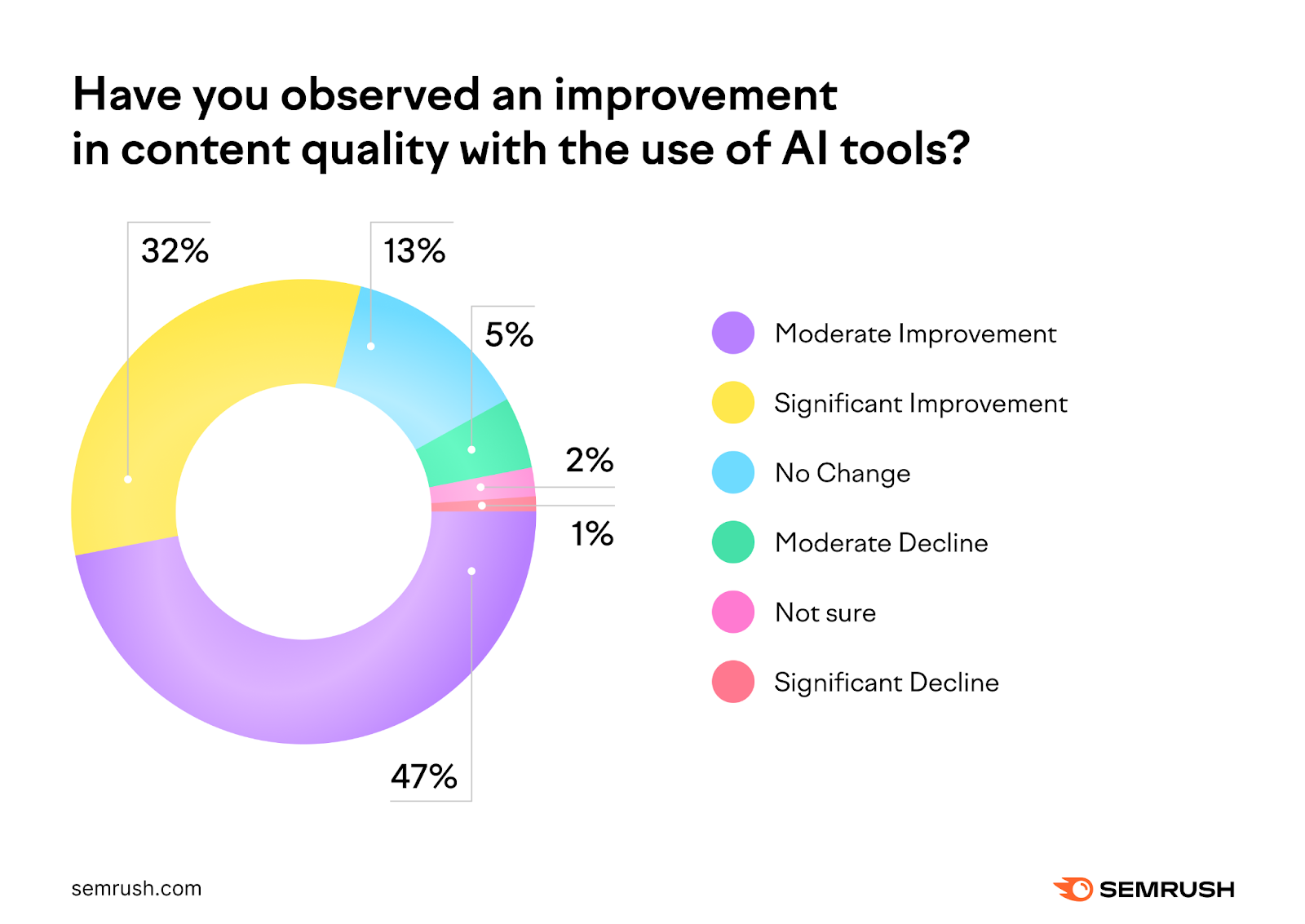
But, as you can see, there’s a caveat: AI only works great when you combine it with human oversight.
Our survey found that 93% of businesses review AI-generated content, which includes checking its tone of voice and style, as well as consulting editors and subject matter experts (SMEs).
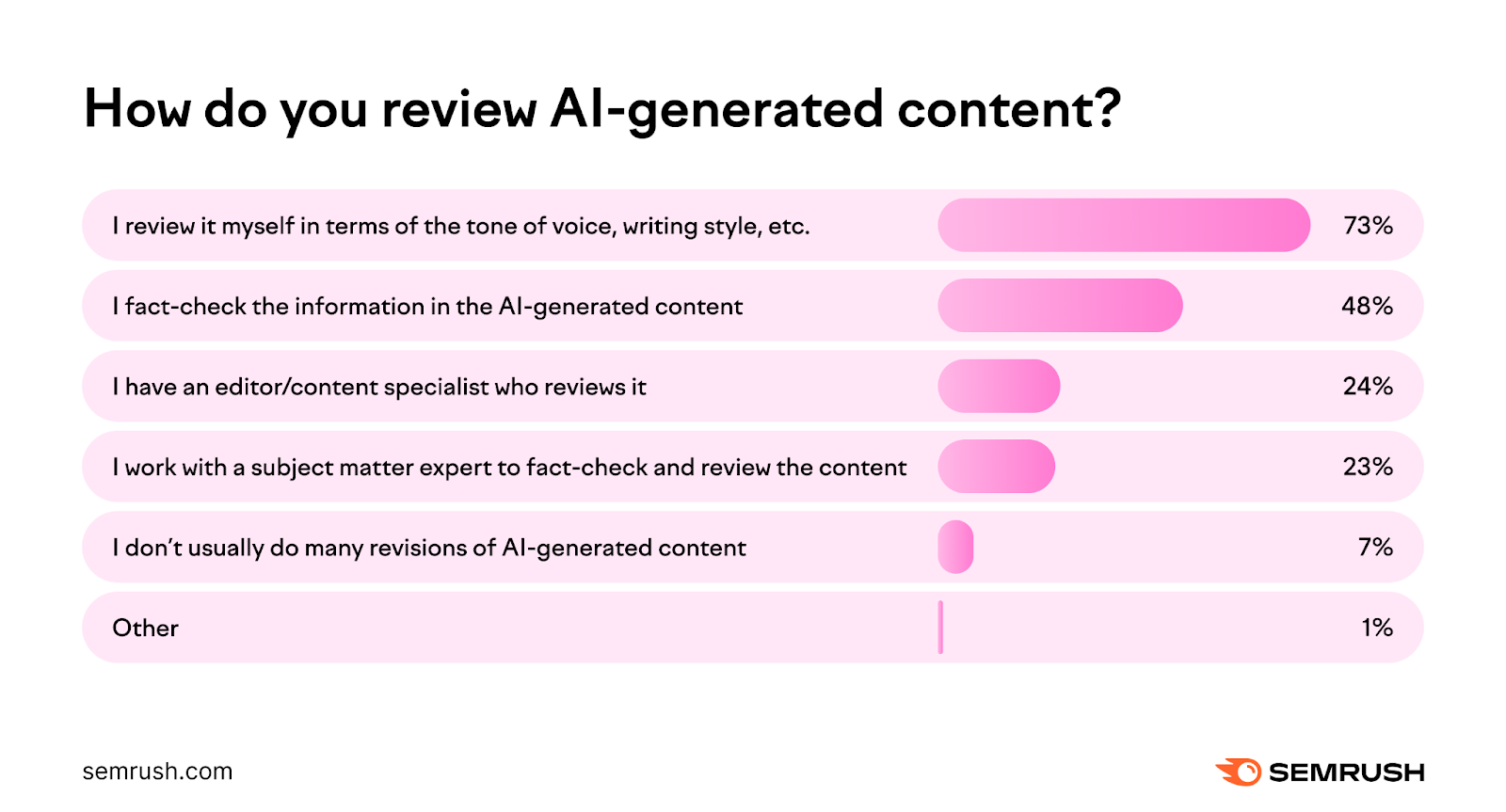
Key Takeaways:
- Always create content with your audience and their experience in mind
- AI should be used as a tool to empower content creation, not to replace writers and editors
- AI can help you research content and improve its quality—but you shouldn’t depend solely on AI when creating content
Trend #2: AI Is Changing Search Engine Mechanisms—But You Can Adapt
According to Kyle Byers, Growth Marketing Director at Semrush, we will witness an unprecedented volume of low-quality content in 2024.
At the same time, AI is set to enhance the quality of SEO content and elevate user expectations.
This trend is likely because numerous brands might view AI as a quick and straightforward solution for content generation—often bypassing the expertise of professional writers or editors.
Generative AI tools like ContentShake AI and ChatGPT are simplifying content creation for teams, regardless of their size.
However, with the inflow of this low-quality content, it will become more crucial to show evidence of human input.
Google's continued emphasis on E-E-A-T (Experience, Expertise, Authoritativeness, and Trustworthiness) highlights the significance of this aspect. These are the same attributes that users are actively seeking. They desire content that is both accurate and genuine.
Another upcoming challenge is Google’s Search Generative Experience in the SERPs, offering AI-generated responses to numerous search queries.
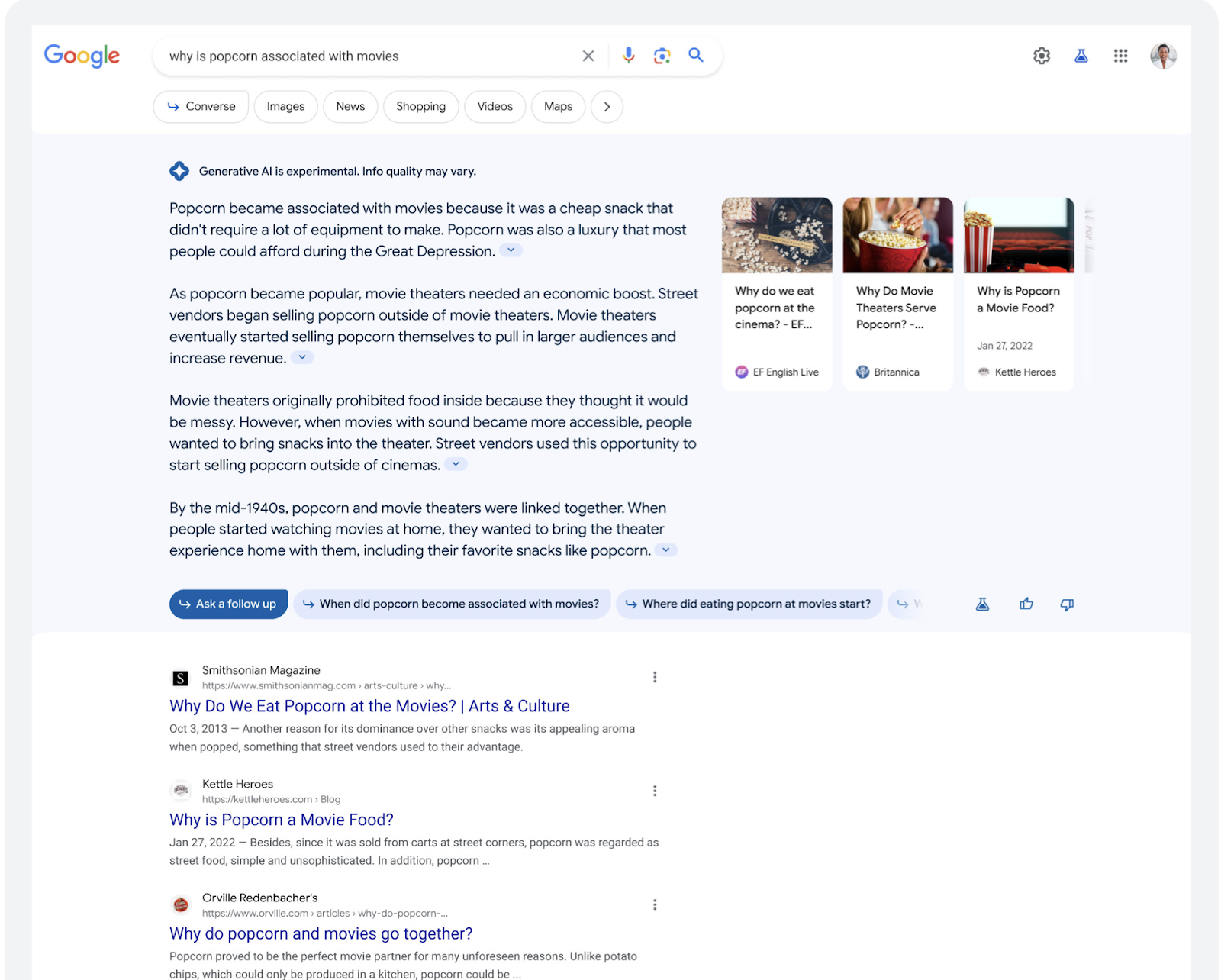
This might influence users to spend more time in the Google search results and less time clicking through links.
Wondering how you can protect your website traffic against these risks?
Byers says:
To compete against that, content marketers should provide experiences that can’t be easily replaced by simple AI summaries. Your work needs to be more compelling to users than ever.
You can compete with Google’s new search experience by making your content stand out. For example, you can:
- Embed multimedia content in your articles
- Add other interactive elements
- Pay attention to the smallest of details
- Provide detailed guidelines and useful examples
- Showcase your brand’s unique voice
- Collaborate with subject matter experts and guest contributors
Visit Lake Tahoe, for example, increases visitor interest by embedding relevant YouTube videos in their blog posts.
Their posts are structured to keep users engaged and scrolling through the content to the bottom of the page.

Adding interactive and visual elements to your content will significantly increase user satisfaction and engagement.
The changes brought by AI don’t end there.
Overall, we can expect search engines to get better at understanding and interpreting user queries, understanding the context behind searches, personalizing search results, and assessing content quality.
With more AI-generated content out there, you might want to pay special attention to off-site SEO—generating authority signals such as high-quality backlinks.
Creating more research-driven, unique, and impactful content is a great way to achieve this goal.
Key Takeaways:
- With the addition of Google’s Generative AI Search and other AI-driven changes, your content needs to be as valuable as possible to compete in the search results
- Adding interactive elements to your blog posts and making them comprehensive will help you keep and hold a reader’s attention
- Creating more research-driven, unique content will remain an essential SEO tactic in 2024
Trend #3: AI-Generated Content Can Help You Rank High and Quickly
In our survey, we saw that 33% of businesses still don’t use AI tools for content marketing and SEO.
We also saw that a lack of understanding and concerns about AI content’s originality and quality were among the top concerns in this group.
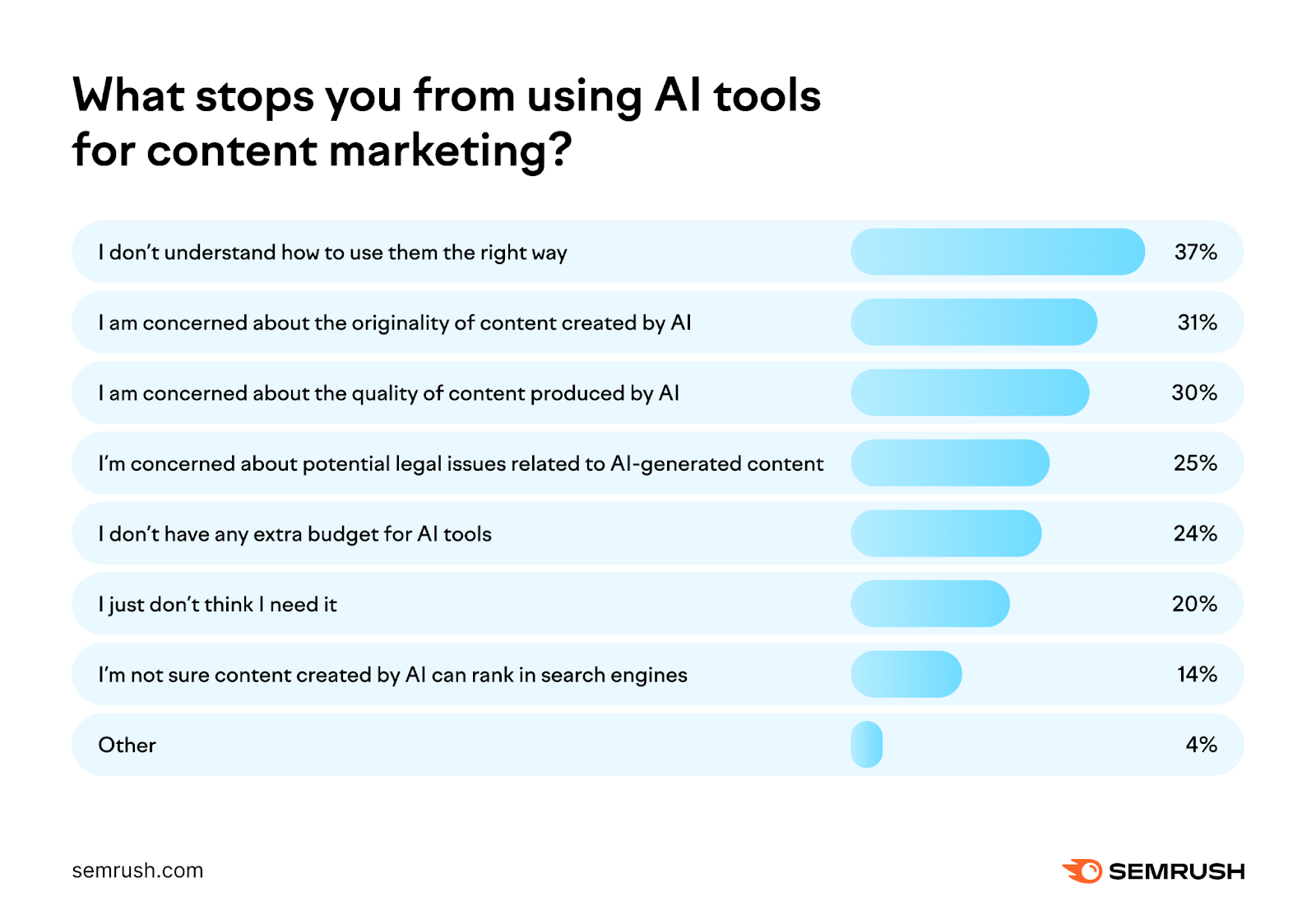
Can AI truly benefit your SEO and content strategy?
Luckily, the answer is yes!
Based on our research, 65% of companies that already use AI see an improvement in SEO performance.
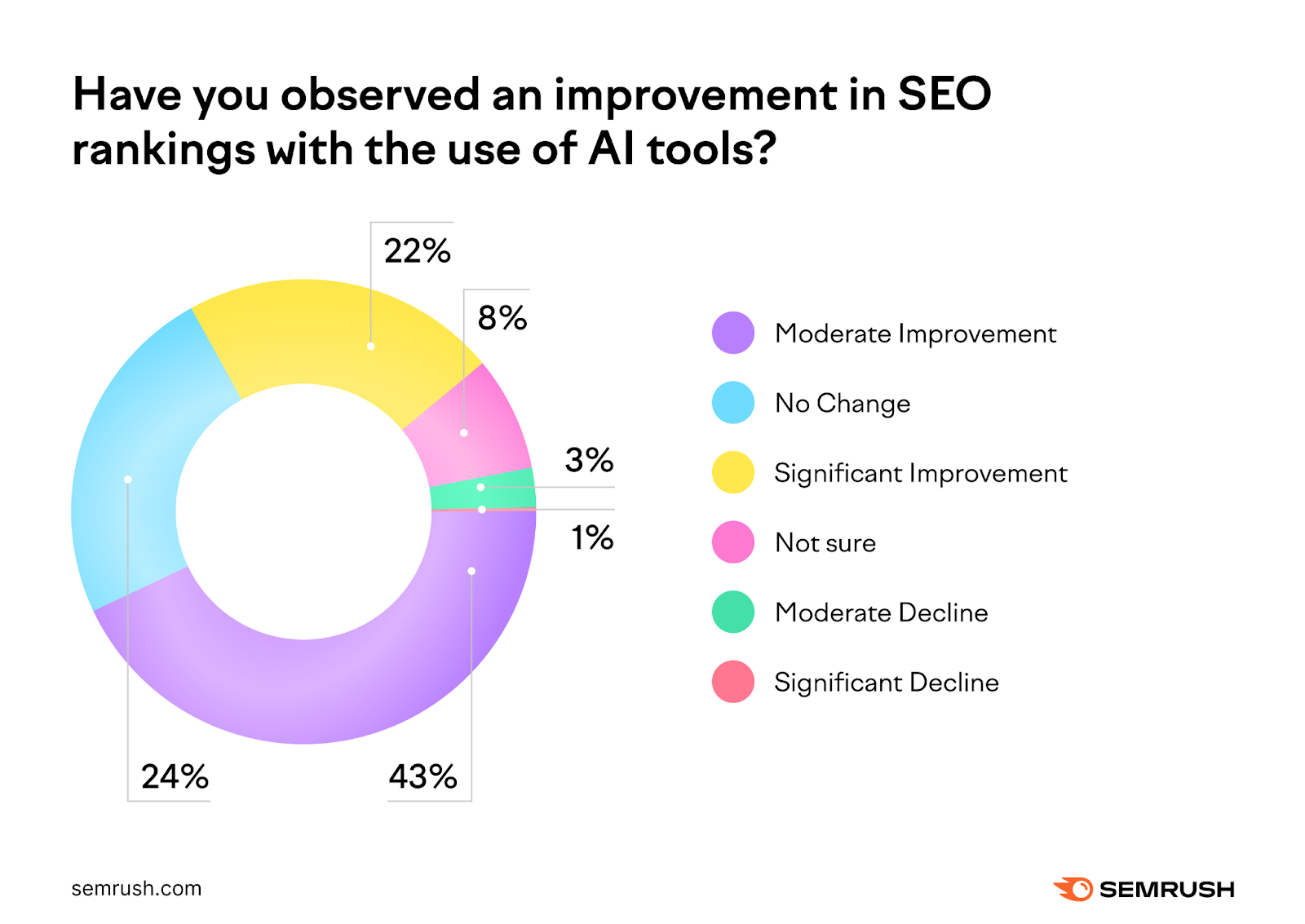
We also saw that 55% of companies saw their AI content rank in search more than once and 76% at least once. So, don’t get stuck thinking AI-generated content edited by humans won’t perform well—it does.
But there are some best practices to follow.
Combining AI with original research and expertise
First, according to Google’s search guidance, high-quality, engaging content will rank far better in search engine results than any other content.
So, Google doesn’t care how it’s created– either written by a human or AI.
What matters most is that the content follows E-E-A-T (Expertise, Experience, Authority, and Trustworthiness) standards.
The ideal way to approach it is to create a synergy and collective work of AI tools, subject matter experts (SMEs), and writers.
- For example, you can interview a subject matter expert or conduct a survey with your customers
- Then, enter your insights into an AI tool to write a blog post or report based on the information you provided
- Next, to spruce up your draft, add the human touch. Work with a writer and/or an editor to humanize the copy
Think of adding case studies, stories, or humor. These elements will attract readers to your content.
Take Bankrate, for example.
In 2023, Bankrate, an authority in the personal finance space, used AI tools to aid in its content creation process. Instead of posting the first draft of AI content, Bankrate editors:
- Reviewed and fact-checked information
- Edited their content to demonstrate E-E-A-T
- Offered a disclaimer to let readers know AI helped create their content
Bankrate's disclaimer lets the audience know that even though AI was used in content creation, they can still trust the validity of the content because it’s been reviewed by experts.

Another strategy you can implement is to talk to AI like you talk to real writers and content specialists. You can’t always expect to immediately get a perfect result when working with humans—and AI is no different.
Instead, make sure to create detailed yet simple prompts and guide AI, the same as when you create content briefs and edit content drafts.
Combining AI with SEO data
Remember that many AI tools like ChatGPT don’t provide real-time SEO data on keywords, search intent, etc.
To address this, you can combine AI with SEO tools and manual research. For example, by using Semrush and manually analyzing the SERP to understand the search intent.
In our research, we saw that the majority of businesses are using different tools in addition to AI.
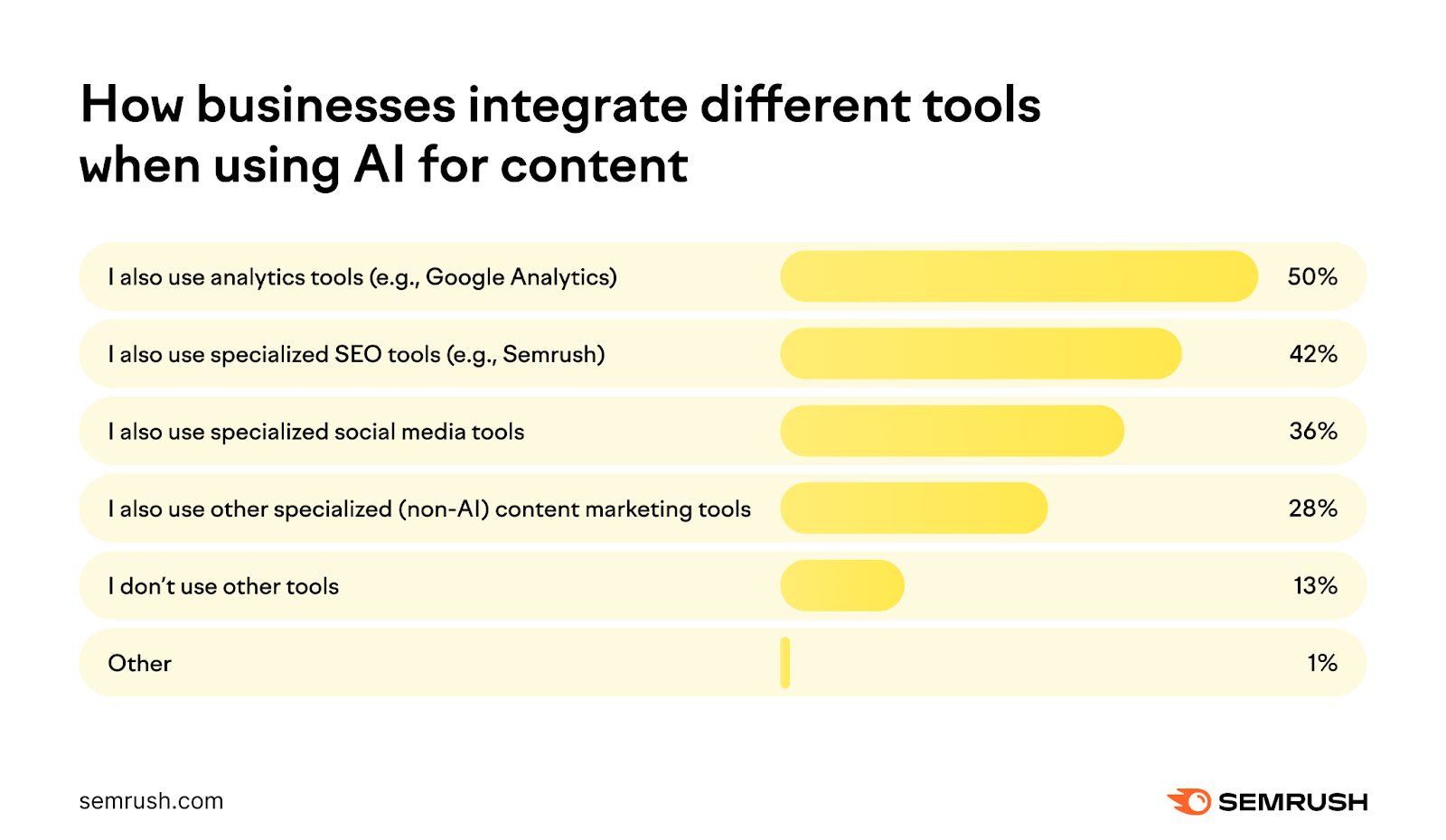
Alternatively, automate this process with specialized writing tools like ContentShake AI.
It integrates ChatGPT's AI capabilities and Semrush's real-time SEO insights.

Here’s how it works:
- Enter details about your business
- Get relevant and trending content ideas
- Create ready-to-rank content in one click
- Generate social media posts to promote it
- Publish directly to your blog
This way, you can quickly create ready-to-rank content optimized for search.
Finally, you can boost your SEO strategy in other ways beyond content creation.
For example, you can ask it to optimize your existing draft for target keywords, cluster and group your keywords, improve title tags to increase CTRs, and more.
Key Takeaways:
- AI leads to improved SEO—65% of companies using AI for content marketing report enhanced SEO performance.
- Success in AI-generated content hinges on balancing AI innovation with human expertise, ensuring originality and adherence to E-E-A-T standards.
- Combining AI with SEO data and using tools like ContentShake AI can optimize content creation, making it more relevant and effective for search rankings.
Trend #4: AI Is Inducing a Creator Countermovement
Remember the days when creating content was fresh and exciting? And it didn’t feel like every brand’s content was an exact copy of the next?
Well, things are changing with AI.
The emergence of AI-powered technology brings an unexpected countermovement, and it’s a content marketing strategy that all marketers will want to jump on.
Melanie Deziel, Speaker, Author, and Co-Founder of Creator Kitchen, says:
In 2024, what content marketers need to do to stand out is to practice bringing our most human selves into our work. We need to show up with vulnerability, transparency, and candor.
Sarah Noel Block, a marketing consultant at Tiny Marketing, agrees with Deziel:
Today, internet users gravitate towards genuine interactions. They're seeking out the human touch on their screens—raw, unfiltered content that resonates more deeply than any high-production video ever could. It's a trend rooted in our desire for authenticity, to connect with real people rather than polished personas.
We know AI tools help content creators spend less time creating content.
We found that 36% now create a long-form blog post in less than one hour—compared to 16% before using AI tools.
Brands can use the time saved on creating to connect with their audiences in other ways—like adding an extra layer of human touch and stories to their content.
Your audience wants to avoid seeing polished messages from your brand. Instead, they want to see:
- Behind the scenes
- The bloopers and mistakes
- The real humans who run the business
- Personal stories
- Community impact
For example, E2M, a fitness company based in Charlotte, North Carolina, interacts with its community on Facebook and regularly uses live videos to engage with community members.
The E2M fitness coaches record their live workouts from their garages and basements and don’t shy away from hiding their humanity, either.
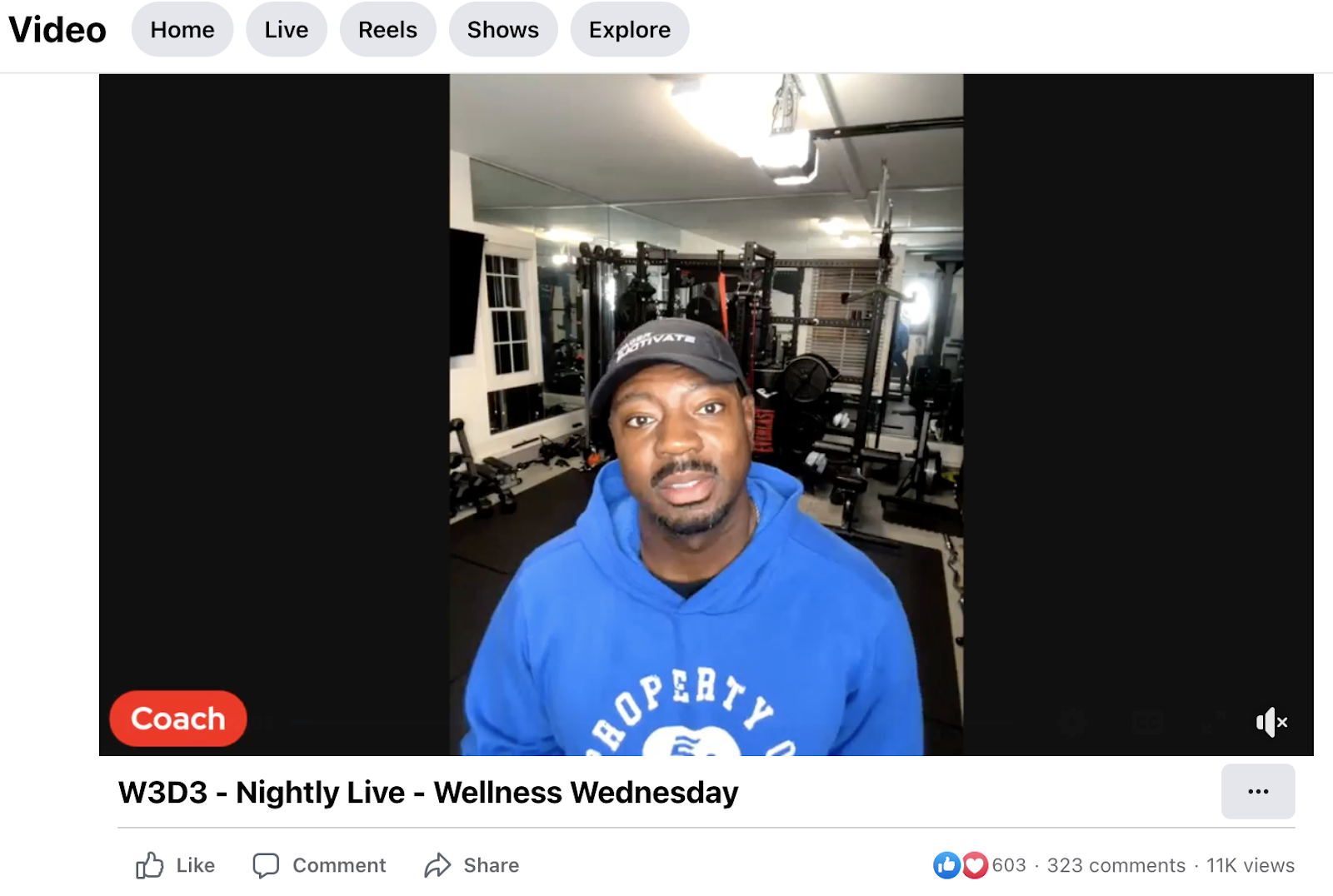
Pets, children, and mishaps are regular parts of their videos that help their audience connect with the brand.
E2M’s live videos use Meta’s AI software to create closed captioning. This makes the brand more accessible to all members of its target audience and creates a deeper connection with the community.
Key Takeaways:
- Audiences prefer genuine, behind-the-scenes content that reflects a brand's true personality.
- AI tools in content creation free up time for brands to focus on more personal, human interactions.
- Brands showing real-life elements, like E2M's unfiltered live videos, foster stronger audience relationships.
Trend #5: The Click-Through Rates in Search Are the Priority – and AI Can Help
We’re seeing more complex elements on SERPs—think AI-generated summaries, Featured Snippets, and so on. As a result, users may not have the same incentive to click through to see the actual pages.
But if you think improving your click-through rates (CTRs) is a lost cause, think again.
One of the hottest 2024 content marketing trends is using AI tools to conduct SEO analysis—which includes improving click-through rates of old and new content.
Andy Crestodina, Co-Founder and CMO at Orbit Media, suggests using specific ChatGPT prompts to find which of your pages could use a little more razzle-dazzle in the meta and title tags.
Andy says:
Search engines aim to answer searchers’ questions more efficiently by offering featured snippets, related questions, and knowledge panels in search results… However, what’s new this year is that you can use AI to increase the CTRs by adding quick yet meaningful fixes to your content.
To determine which of your posts has a lower than expected click-through rate, you can:
- Open up your Google Search Console account
- Open the Search Results tab
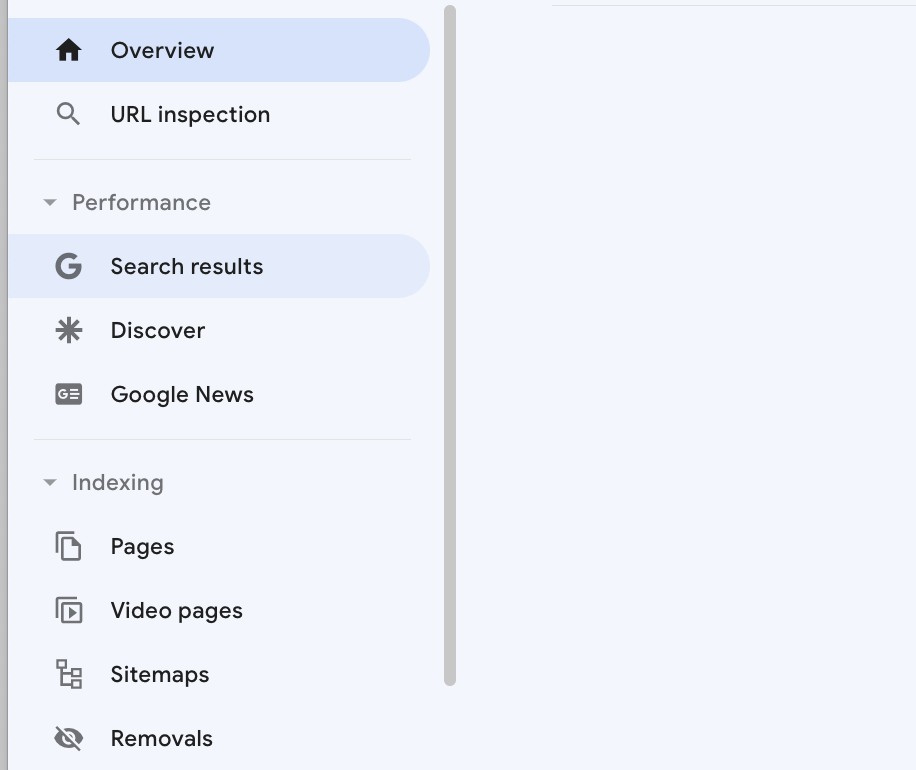
- Export your data in a CSV file (you’ll need the website URL, click-through rates, and average ranking position).

For example, you can choose to only see blog post links by clicking “+ New” and specifying the page parameters.

- Upload the CSV file to an AI tool like ChatGPT
- Enter Andy’s prompt:
“You are an SEO expert at analyzing search performance and maximizing engagement within SERPs. Which of the following pages has lower than expected CTRs based on their average search position?”

Using the results of your prompt, you can determine which of your links are performing poorly.
Those are the links you need to focus on.
Next, you can change the title tag and optimize the meta description to increase the page’s CTR.
Don’t forget, you can ask AI to help you write and enhance your meta tags too.
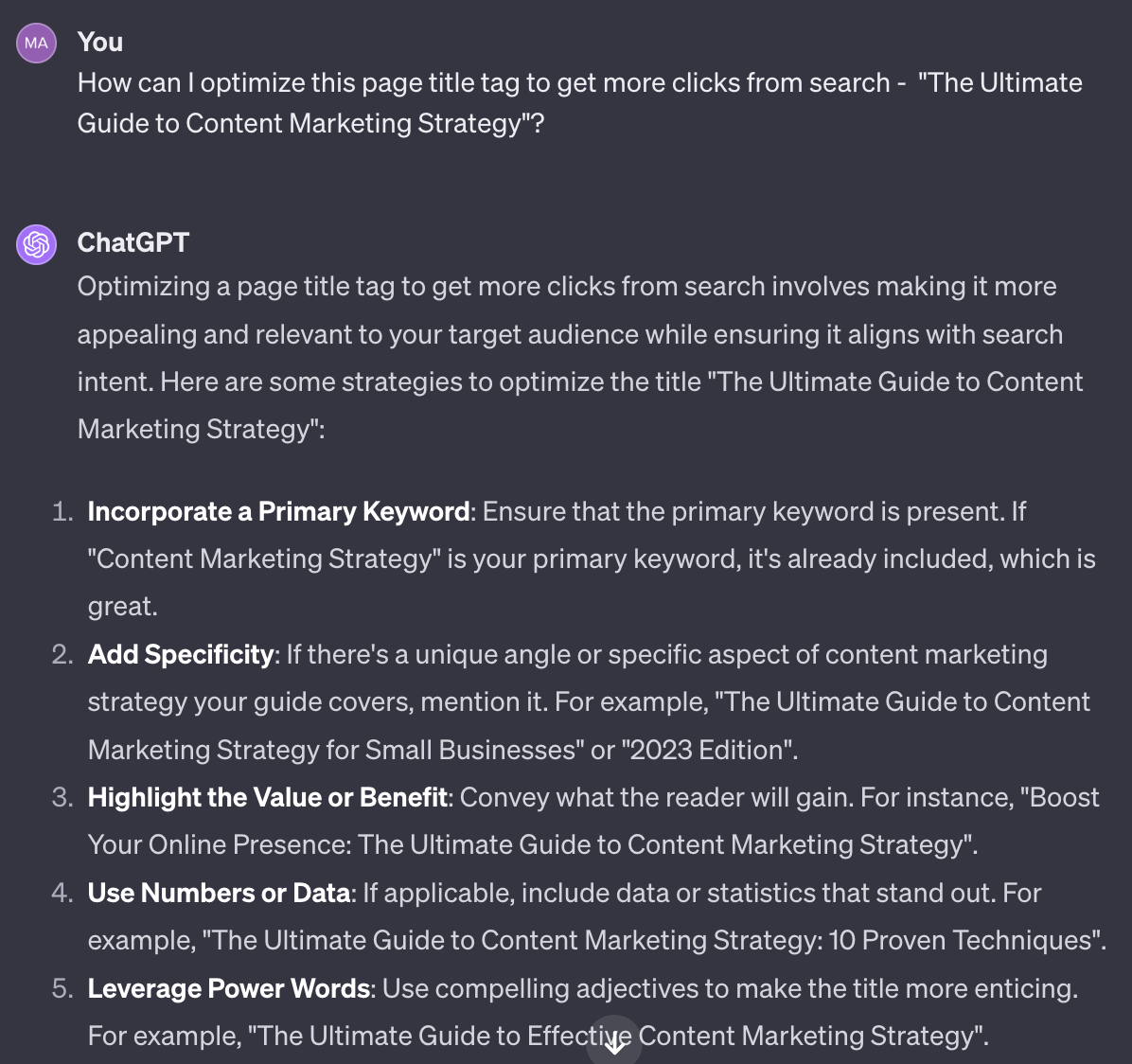
These small but meaningful changes to your existing meta and title tags can increase traffic to your site, making your 2024 content marketing strategy a success.
Key Takeaways:
- AI tools don’t just create content—-they can help you with all aspects of your SEO, including click-through rates
- Use AI tools to gain a deeper understanding of your SEO insights and use what you’ve learned to optimize your content
- Look for more out-of-the-box use cases of AI for SEO and content marketing
Trend #6: Getting Ready for Lights, Camera, AI Video Content
With SEO becoming more complex, other forms of content, like short-form video and social media, will only continue to grow in popularity So, jumping on the video bandwagon and implementing AI video tools is the way to go.
Ross Simmonds, CEO of Foundation, knows AI-video content is about to explode.
Simmonds says,
In 2024, we are going to see the rise of AI-supported video content. A lot of people might read that and immediately think I’m talking about AI animations and AI-supported effects on the back of Midjourney. But in reality, I’m talking about top-to-bottom AI-created video experiences that include everything from talking head videos that are actually synthetic avatars using synthetic voice to AI-powered webinars.
According to our report, a growing number of businesses, 52%, plan to try AI-generated video content tools in 2024.
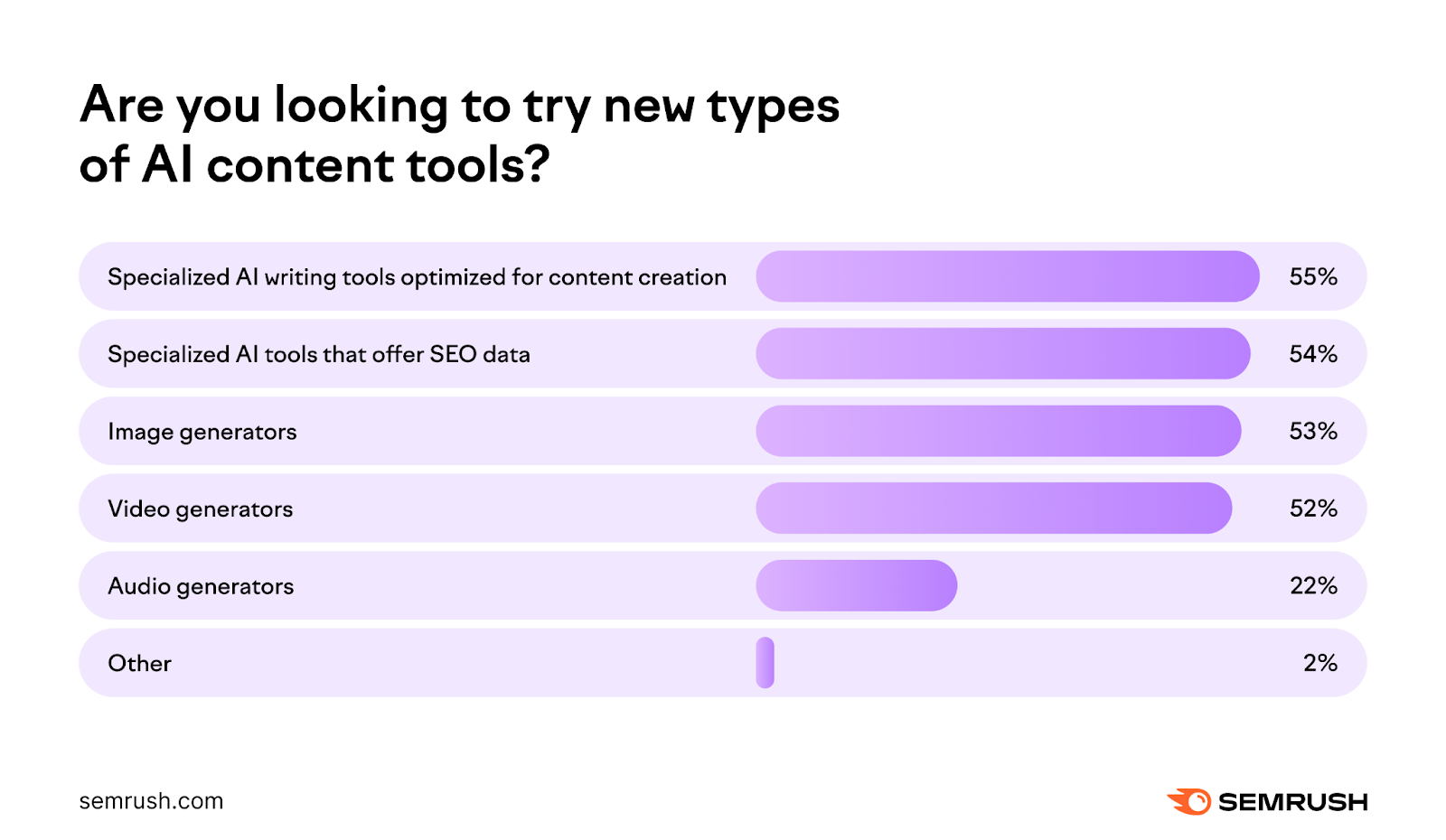
With the help of AI, video creators can:
- Personalize a video message to an individual
- Create an interactive video
- Auto-transcribe audio to make it accessible for all users
Simmonds says, “In B2B, I think the rise of AI-driven content will have a huge impact on sales teams and executives who send mass communications to target customers.”
AI tools like SubMagic, InVideo, Scena.ai, or Synthesia make it easy to start creating video content.
For example, here’s a useful guide on how to generate a video with AI:

Key Takeaways:
- Short-form videos will continue as a hot content marketing trend
- AI video tools help create personalized content tailored to your audience
- You can use AI to create all kinds of video—from webinars and ads to onboarding, training and sales videos
Trend #7: AI Can Help Attract Listeners to Your Podcast
If podcasting is part of your 2024 content strategy, you’ll want to pay attention to this content marketing trend: AI-supported podcasts.
Podcasting is one of the world’s fastest-growing media. However, reaching new audiences and ranking your podcasts in search is not an easy task.
Here’s how you can fix it.
Using AI technology, Google now indexes audio files, meaning your podcast episodes can rank in the search results with the proper optimization.
It’s important to note that Google doesn’t always get indexing right, especially regarding language processing.
Things like your accent or the spelling of names might cause Google to index your show incorrectly.
To get it right, you can use AI podcast repurposing tools.
They automatically repurpose podcast episodes into transcripts, show notes, blogs and social media posts, newsletters, video clips, and more.
João Amaro, Co-Founder of Podsqueeze, says:
Transcribing podcast episodes can lead to a significant boost in online visibility, with studies
showing up to a 6.68% increase in search traffic and even a 50% rise in keyword rankings for some.
AI audio tools can help podcast creators:
- Transcribe audio
- Summarize text and audio files for show notes and blog posts
- Optimize titles and meta descriptions for relevant keywords
- Suggest content ideas, talking points, or interview questions
- Create royalty-free music
- Enhance sound quality
For example, the Hacker News Report, a podcast by Wondercraft.ai, delivers short summaries of top news stories and relies on AI tools to generate scripts. And it uses AI audio to provide the news, too.

If podcasting is on your radar for 2024, you’ll want to follow Amaro’s advice: use AI tools to save time creating and marketing your podcast.
Key Takeaways:
- With SEO becoming more challenging, podcasts can be an effective tool to reach additional audiences in 2024
- Google’s audio indexing can help your podcast rank in the search results
- Use AI tools to help speed up your podcasting tasks, like writing show notes and descriptions
Trend 8: AI Will Further Promote Niche Content Marketing
Quantity over quality is the wrong way to approach your 2024 content marketing strategy, especially if you’re a niche marketer.
It’s not about the number of blog posts on your website anymore—it’s about targeting relevant, hyper-targeted topics and creating comprehensive content to cover them.
Vanhishikha Bhargava, Founder of Contensify, is sure AI will be a huge factor in niche content marketing.
Bhargava says:
Far from being just a tool for mass content production, AI is now steering towards enabling niche content creation. It simplifies researching and crafting content tailored for a very specific audience, ensuring every word resonates and adds value. The trending conversations around the E-E-A-T framework are confirming this shift. It's about prioritizing relevance and context over sheer content volume.
If you want your audience to stay on your website and for Google to play nice with the E-E-A-T framework, you’ll need to dig deep into your audience’s pain points to understand their needs.
You can use AI to:
- Define your niche and better understand your target audience
- Create an ideal reader persona based on your audience’s demographics
- Streamline the writing process
For example, you can ask AI whether your blog posts and landing pages are optimized for your buyer persona, or to create a content outline focusing on their pain points.

AI tools like ContentShake AI can be instrumental in developing your niche content marketing strategy. You can use it to generate unique, SEO-rich, and up-to-date content on any niche topic.
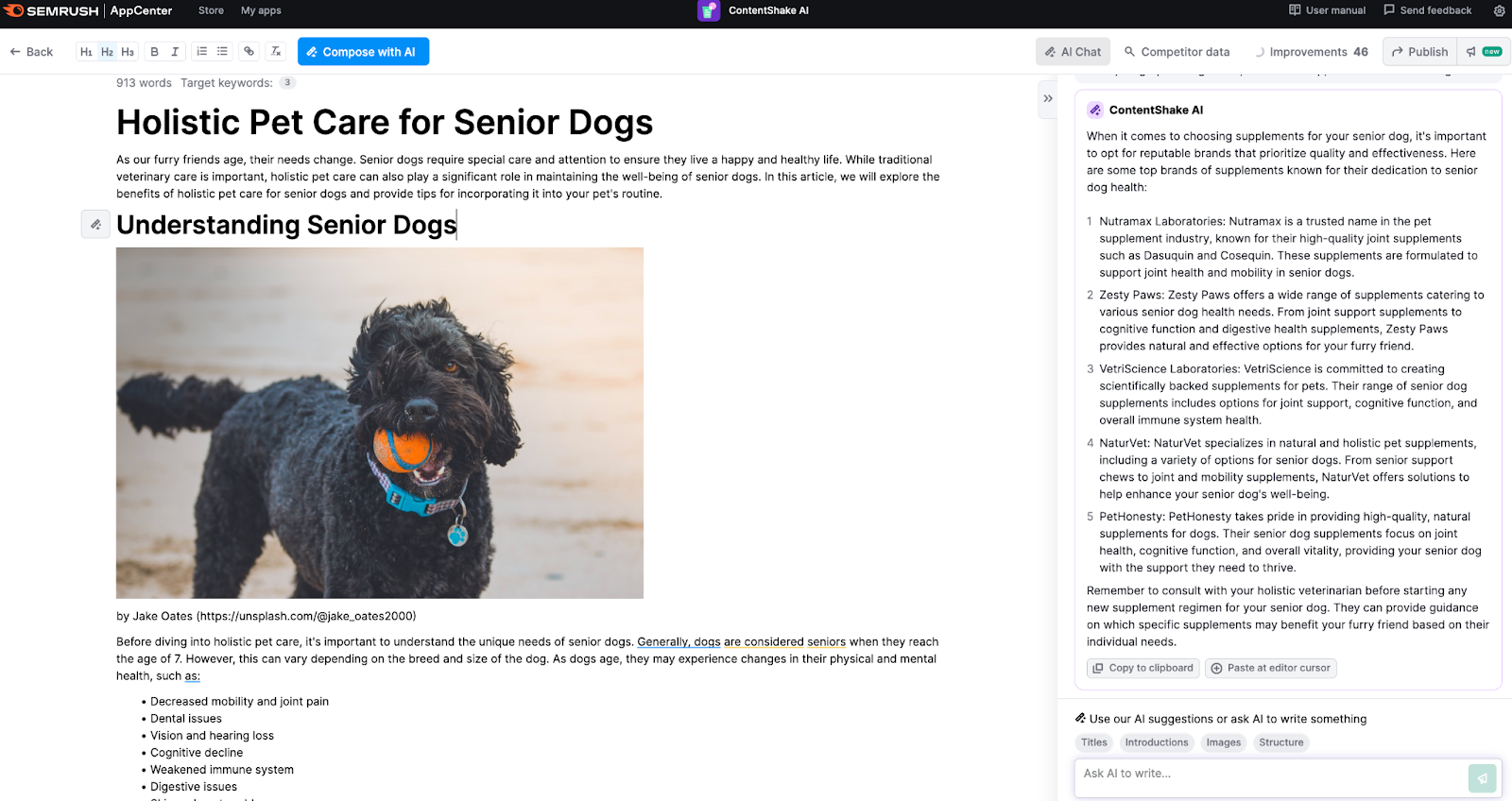
According to our report, 30% of marketers are already using AI to research their audience. 50% of marketers already use AI tools to write their content from scratch.
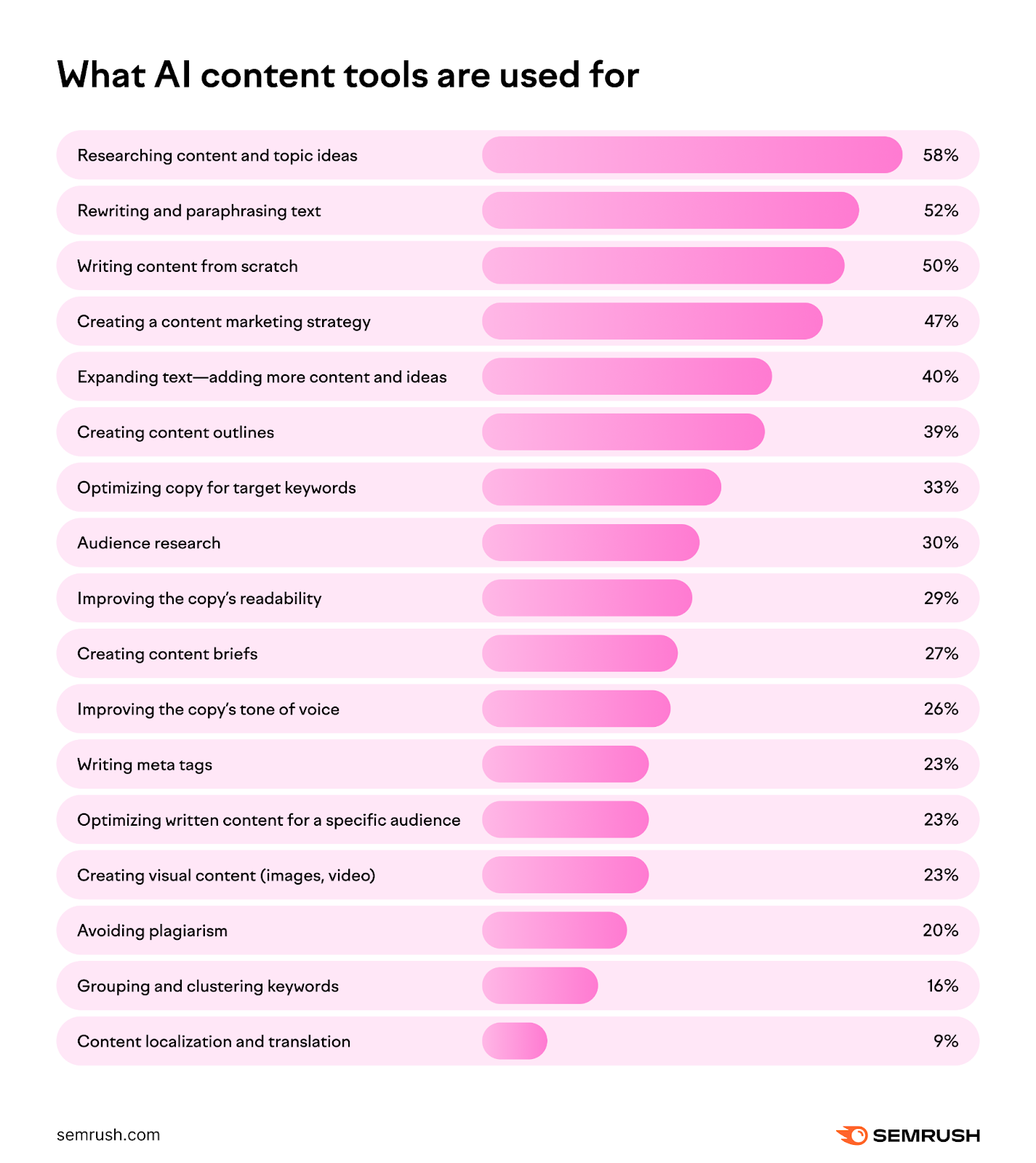
If content is king, AI and the human touch make up the crown.
Key Takeaways:
- Niche content marketing is on the rise
- AI tools can help you define your niche and better market to your audience
- Keep a “human first” approach at the front of your content marketing strategy
Trend 9: AI Will Change Consumer Content Patterns
Don’t scratch live streaming off your 2024 content marketing strategy.
Since the pandemic, users crave live, real, unedited content more than ever.
Sarah Noel Block knows just how useful live-streaming will be in 2024 for brands trying to create genuine connections with their audience.
Sarah says:
Fostering trust through live video has become a game-changer for customer engagement strategies across various industries. Whether it's showcasing products through TikTok livestream shopping or engaging viewers via influencer marketing on platforms like Facebook Gaming or Twitch, the message is clear: be real with your audience.
Sarah suggests choosing one platform and using it as your “home base” for your brand.
Whether that’s TikTok, YouTube, Instagram, or Facebook, focusing your marketing efforts on one platform will help you better engage with your users who are already active on your chosen platform.
Create connections with your audience by
- Live-streaming a product opening or reveal
- Inviting your audience to a live workshop
- Giving a behind-the-scenes look at your brand
Sarah adds,
The creator economy is reshaping how we think about content and connections… This year, we will see more raw, unfiltered content focusing on a single channel. It’s all about real relationships and building community.
Live webinars and workshops also play a role in creating authentic online learning experiences while fostering this sense of community.
The trend of raw, unedited moments in live streaming is on the rise, as viewers seek to connect with the real individuals behind the camera, not just consume content.
It's about establishing a personal connection and understanding the people behind the brands, making authenticity a driving force in modern content engagement.
Key Takeaways:
- Live video becoming more personal and real is a hot 2024 content marketing trend.
- Live, unscripted video will resonate with your audience.
- Don’t try to be everywhere, and focus on platforms that perform best.
Stay Ahead of 2024’s Hottest Content Marketing Trends
Now is the time to get familiar with the 2024 content marketing trends and reviese your content marketing strategy.
Level up your content game by:
- Incorporating AI tools
- Clearly defining your niche, your target audience, and their needs
- Creating content that connects with your audience
- Fostering an engaging community
Interested in learning more about the 2024 AI Content Marketing Report?
Explore it with our integrated AI Assistant and make the appropriate changes to your content marketing plan.
